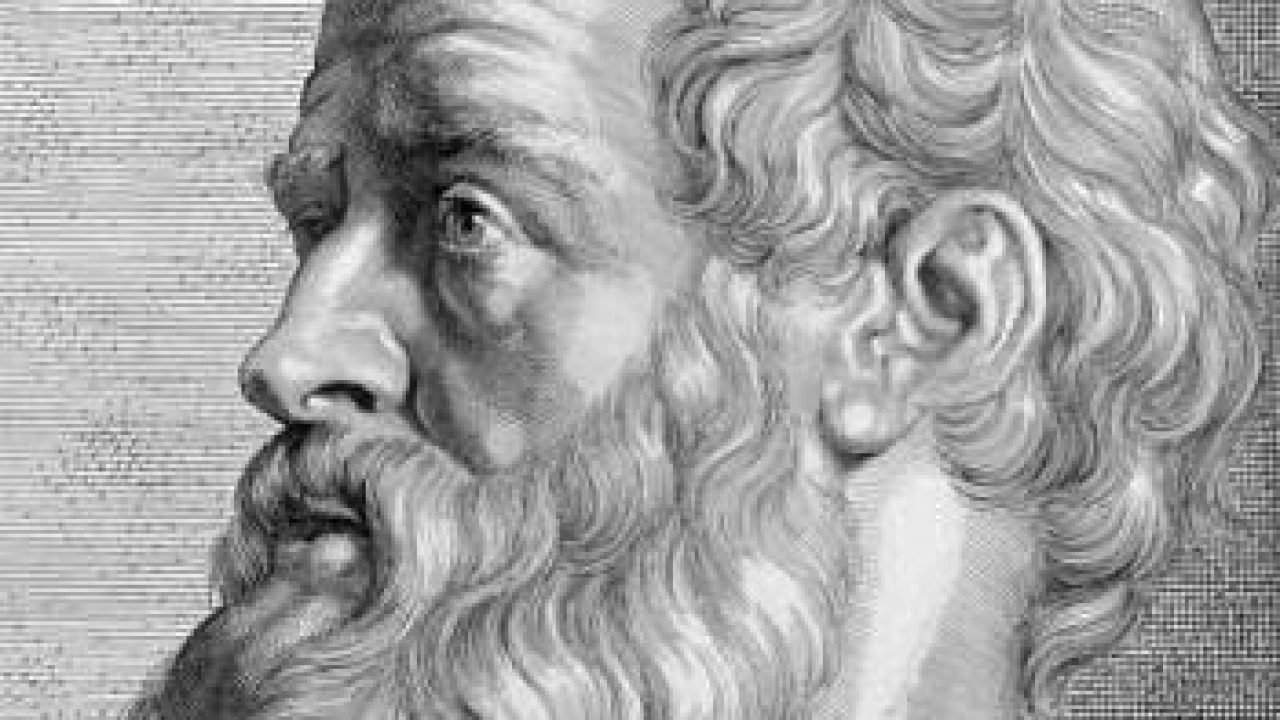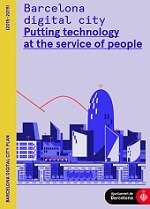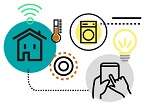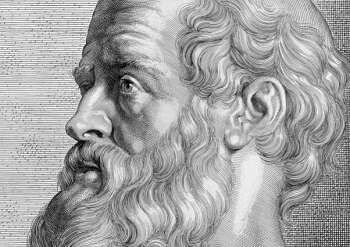Blog: The Need for an Engineering ‘Hippocratic Oath’
Article By : Casper Koomen

To develop smart cities that serve people, planet and society, engineers might consider adopting a Hippocratic Oath for Engineering to guide their work.
Cities are becoming smarter as we add sensors, extract and combine data, and optimize processes. Smart cities promise to improve our lives with more comfort, services, safety, efficiency, connectivity. Transport might become instantaneous and flawless. Energy could be used and produced as efficiently and sustainably as possible. Crime might be detected when or even before it happens. Cities might run with ease because processes become interlinked. People may not have to worry about spending too much money or doing taxes, because the city takes care of it for them. Our every need could be met through micro-advertising based on emotions, (predicted) behavior and buying histories.
Although technology has the potential to offer lots of benefits, we might want to be smart about what we build and how we do it. As pointed out in this EE Times article entitled, “Wanted: the Human Side of Technologies,” there might be a side to smart cities that we should not overlook. Shaping technology, which is becoming more and more ingrained with our environment and our lives, is something that should not be done lightly.
People, nature and society need to be at the center of the decision-making process yet are often forced to take a back seat when engineering decisions are made only from technical, business, economic or governance perspectives. In the heat of things, the undervalued, implicit and invaluable parts of life are easily overlooked or discarded. We might end up with cities that are too one-dimensional for life.
Shared responsibility
Shaping and applying technology should be a shared responsibility. An ethical practice and open collaboration can help us to develop smart cities that serve people, nature and society and their future. Engineers have a duty to consider the consequences of their work on every level possible.
Do we perhaps need a Hippocratic Oath for Engineering?
A city is more than its buildings, shops and streets. It comes alive from the people in it. Great cities can make people come alive too, just like nature, a great book, education, family or something wonderful can. People live their lives full of dreams, successes, doubt, failures, mistakes, contradictions, spontaneity, dilemmas, thoughts, learning, sorrow, joy, et cetera. With a smart approach we might cater to this full spectrum of life.
Imagine a smart city that helps you to grow and learn in a natural way. Maybe public spaces provide subtle interactions that help people to feel happy and calm. How about a smart city that stimulates people’s creativity and acts as a shared stage for people to share and mix their art. Imagine streets that help you stay healthy and fit. Think about public spaces that stimulate meaningful conversations between strangers. How about sidewalks that help you discover your city? Imagine a smart city that adapts itself continuously for cleaner air, less noise and better energy usage. A smart city might be a circular city where no material is wasted. How about a city that stimulates biodiversity and contributes to a healthy environment?
Integral solutions for smart cities
The question here is not whether these are good suggestions, or which one is the right one (if any). It is more about how we can establish a dialogue about what we expect from smart cities.
From a broader perspective, the growth to maturity of smart cities is not the only challenge we are facing today. Climate change is forcing us to rethink our economic models and the way we use products, energy and materials. Social and economic divides are undermining the stability of our societies.
Disruptive technologies such as big data, AIs, quantum computing, electric vehicles will dramatically change life. Together these challenges present a perfect storm.
With smart cities we might have the opportunity to create integral solutions for all these challenges. They offer us the opportunity to rethink and redesign our society for peace, sustainability, health, prosperity and joy.
Building livable and resilient smart cities needs at least two things: *open collaboration and ethical practice*.
Open collaboration
Open collaboration frees a city and its people to keep evolving. Considering that cities are always changing, this takes a continuous collaborative and holistic effort where we are able and willing to look beyond the boundaries of our own concerns and interests. Smart cities are the ultimate place for open collaboration. Between people, government, businesses, and the commons. Between engineering, the arts, the humanities, politics, philosophy. Between generations, also the ones that are not yet here.
Open collaboration is only possible when certain conditions are met. When the underlying technology and data of a city become (part of) the place where we live, they need to be available for re-interpretation and replacement. Especially smart city data, created because people live in cities, should be made available to the community of that city so that there is space for renewal. This means that we need to establish and safeguard space for renewal, adaptation and change. Preventing cities from getting locked into specific or closed technological solutions is necessary to facilitate this space.
That shared “grey space in the middle” is where society can contemplate, experiment and create, free from preconceptions, bias and legacy, what it needs to sustain and advance itself. Open collaboration of this kind can only really happen when there is also open source, open design, open data, open governance, etc. Imagine having access to all the knowledge, creativity and hearts of the world.
“Artists like Duchamp were so prescient here — the idea that the piece of work is not finished until the audience comes to it and adds their own interpretation, and what the piece of art is about is the grey space in the middle. That grey space in the middle is what the 21st century is going to be all about.” — David Bowie
Ethical practice
An ethical practice will guide us through the immense field of possibilities that technology offers us to find common ground about what we intend to do and what we choose to ignore. I would love to live in a world where we are able to say “no” to technologies as much as we are willing to embrace them.
Inevitably, in any innovation process things become uncertain. When this happens, we tend to want to find (give!) an answer. Sometimes the right answer is not the most obvious one. Ethics can help us with some patience in the process and the confidence that we will be able to find solutions that are not only possible, but also right.
Being ethical means taking bird’s eye views as much as getting down to the practicality of what you are building. Making sure that solutions and technologies are interoperable and interchangeable makes it possible to adjust things based on growing (ethical) insights. What if we discover at some point that those AI powered smart city light are actually trying to take over the world and make us their slaves?
It is important that cities and the organizations and communities involved in advancing their growth share a set of practices where the long-term interest of society is safeguarded. Technologies should in principle be beneficial to the community and individuals.
Barcelona
Luckily there are already plenty of examples of people working on the human side of technology and democratizing technology for the common good all over the world.

In the area of smart cities specifically, Barcelona has adopted a smart city strategy that ensures the rights of its inhabitants.
CTO Francesca Bria is leading the way with [policies] that make data openly available for the common good and making the people’s interest front and center in the development.
In the Netherlands, Amsterdam is approaching smart city technology in a similar way.
You can Download Barcelona’s Digital City Plan here.
DECODE project in Europe
In Europe, the DECODE (DEcentralised Citizen-owned Data Ecosystems) project, an initiative of over 14 European cities, is working to give people control over how their data is being used and used for the common good.

DECODE, an experimental project, claims that it plans to “enable practical alternatives to how we manage our personal data and interact on the Internet.” Its mission? The organization explains: “To develop technology that puts people in control of their personal data, giving them the ability to decide how it is shared. The technology will include an architecture for controlled and, if desired, anonymized data sharing, paving the way for the creation of a ‘data commons’.”
WAAG in the Netherlands
Many open, and grassroots initiatives are emerging advocating ethical thinking and solutions at the intersection of technology, culture and society. In the Netherlands, WAAG Society has been addressing the implications of technology for almost 25 years, since the early days of the world wide web.
GDPR
The European Commission is advocating citizen’s data rights, for example through the GDPR.
Silicon Valley
An example from Silicon Valley (where all evil surveillance capitalist business models come from, right?) could be engineers walking out of Google offices over their company’s involvement in a foreign government’s citizen surveillance (which it then halted — though not abandoned [did they?]).
Time for Hippocratic Oath for Engineering
It is wonderful that these initiatives exist and that there are people from within the engineering community who speak out. Yet, they should not have to be a counter-response to business-as-usual. Instead, ethical use of technology needs to be a normal part of every engineer’s and tech entrepreneur’s life.
Yes, it is time to take a Hippocratic Oath for Engineering.

Perhaps this could be as simple as “I promise to do no evil” but I think it should entail a little more than that (and who is to say your ‘no evil’ is everyone’s?). “Go fast and break things” certainly is not the right way to approach it (it feels, I don’t know, adolescent?). Perhaps it is time to turn to other philosophies and cultures for inspiration. The African word ‘ubuntu’, which loosely translates as ‘I am, because we are’ could be an inspiration.
A world that can say “no” to developments when they do not serve the common good would be a welcome place to have. We have built the world we live in now; we can also build that world. Frankly, we must, because by pursuing mostly short-term profits and going along with technology wherever it takes us, we are tearing at the foundations of our one blue planet. Technology is not the answer if we do not develop a healthy mindset to go along with it.
Technology is materialized imagination. We create what we can imagine. We imagine what we intend, believe, fear and dream. Let’s keep making the space where we live our lives as human as possible. It is easy to miss it.
The fabric of society is created by everything we do. Let’s be smart about what we weave.
— Casper Koomen, engineer by education and once featured in EE Times, is a certified facilitator of workshops with the LEGO SERIOUS PLAY method and experienced design thinker, co-creator and innovation starter.
Subscribe to Newsletter
Test Qr code text s ss


